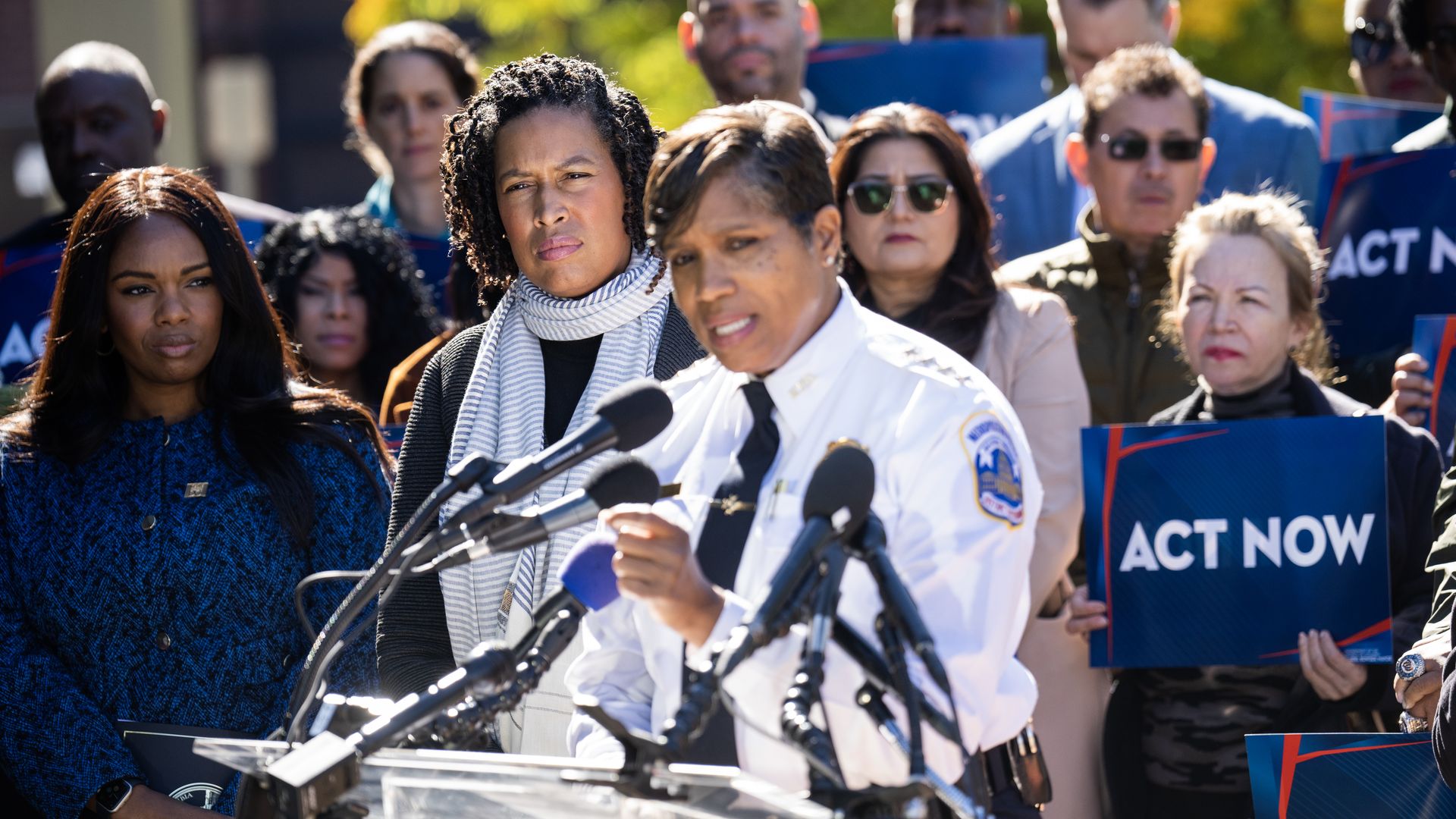How Mayor Bowser's "drug-free zones" would work in D.C.
Add Axios as your preferred source to
see more of our stories on Google.

Acting police chief Pamela Smith at the podium with Mayor Muriel Bowser to the left. Photo: Tom Williams/CQ-Roll Call via Getty Images
A "gray market" of marijuana sales and other drugs on the street are "fueling violence" in Washington, Mayor Muriel Bowser said Monday — as she sought to enact new policing measures.
Why it matters: Bowser's proposal to declare "drug-free zones" across the city could raise questions over the constitutionality and effectiveness of anti-loitering proposals.
Driving the news: The mayor wants to empower police to establish "drug-free zones" in certain public spaces for five-day spans. In these areas, congregating for the "purchase, sale, or use of illegal drugs" would be outlawed.
Of note: The proposal would revive a 1996 law that was repealed in 2014 amid constitutional concerns. Bowser had supported the repeal.
The big picture: Residents and businesses have complained of open drug sales across the district, including in Chinatown. Prosecutors recently charged a crew with drug trafficking in the Kennedy Street corridor of Northwest.
- There are "quite a few areas" with open-air drug markets in D.C., said acting police chief Pamela Smith, who declined to share where they're located. "I don't want to forecast where we will go."
What they're saying: The city would first identify areas with drug dealing, then limit loitering through a drug-free zone designation and clean up the vicinity, Smith said at a press conference Monday.
- Bowser added, "No one should think that there will be 20 drug-free zones being implemented at the same time, but this is a tool the chief would have."
Between the lines: Even though the use and possession of marijuana is legal in D.C., recreational sales remain illegal due to a congressional block.
- That has sprung gifting shops and proliferated street sales of weed. "There's a lot of cash in it … [and] a lot of violence involved in it," Bowser said.
Context: Talk of drug-fueled violence in the nation's capital is a throwback to decades ago. Approximately 60 open-air drug markets existed in 2002, according to federal authorities at the time. That year D.C. recorded 262 homicides.
- D.C. has reported 225 homicides so far this year, up 33% from last year.
Catch up fast: Bowser's bill also increases penalties on those who organize retail shop thefts and bans people from wearing masks to commit a crime or intimidate people.
- It rolls back some reforms enacted after the police murder of George Floyd. The legislation amends D.C.'s chokehold ban to distinguish "between a serious use of force and incidental contact with the neck."
- Officers would also be allowed in some cases to view body camera footage before writing their initial police reports.
What's next: Bowser needs seven votes on the D.C. Council to pass the package. Several progressive lawmakers have not yet weighed in on the specifics of the bill — but signaled an openness to work together on reducing the crime wave.
